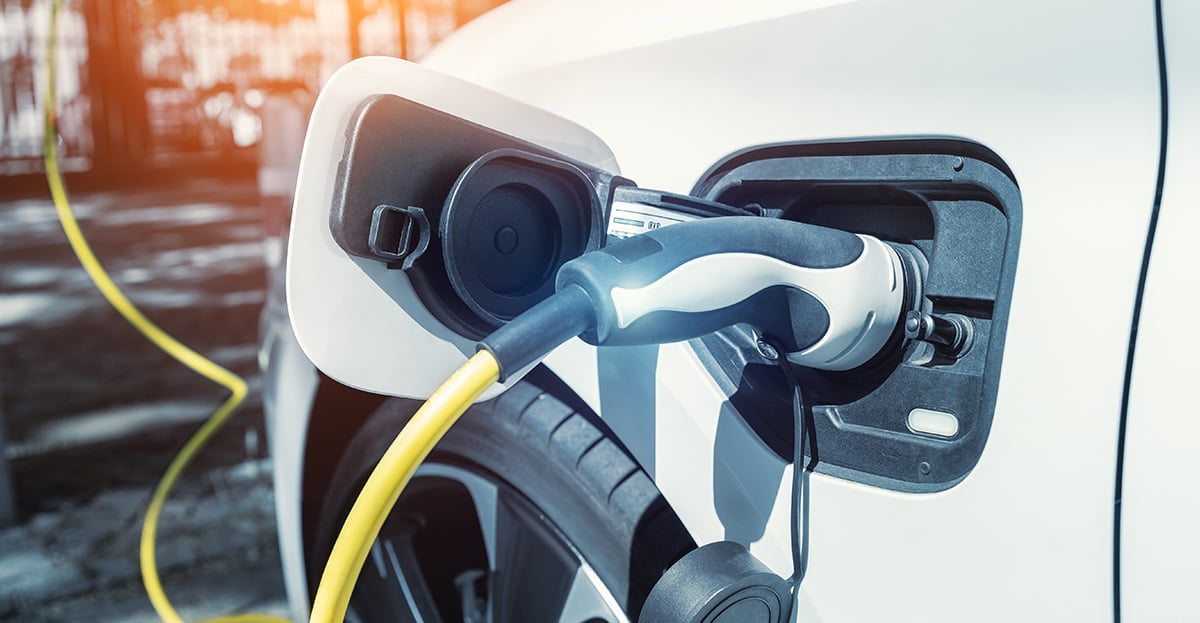Auto Dealerships Push Back Against Mandatory EV Sales

Table of Contents
Financial Concerns of Dealerships Transitioning to EV Sales
The transition to selling electric vehicles presents substantial financial challenges for dealerships. The upfront investment required is considerable, impacting profitability and creating uncertainty.
-
High Infrastructure Costs: Dealerships must invest heavily in charging infrastructure, including the installation of fast chargers and the necessary electrical upgrades to handle the increased power demand. This involves significant capital expenditure, which can be a major hurdle for smaller dealerships. Furthermore, specialized tools and equipment for EV repair and maintenance are also needed, adding to the expense.
-
Lower Profit Margins: Currently, profit margins on EV sales are generally lower than those on traditional gasoline-powered vehicles (ICE). This is partly due to the higher initial cost of EVs and the competitive pricing strategies employed by manufacturers. Dealerships face the dilemma of selling EVs at a lower profit or struggling to move their inventory.
-
Inventory Risk: The uncertainty surrounding consumer demand for EVs adds another layer of risk. Overstocking EVs could lead to significant inventory losses if sales fall short of projections. This is particularly concerning given the higher cost of EV inventory compared to ICE vehicles.
-
Key Challenges:
- High initial cost of EV inventory.
- Need for significant investment in charging infrastructure.
- Lack of trained technicians for EV repair and maintenance.
- Potential for slower sales turnover compared to ICE vehicles.
- Increased competition from new entrants in the EV market.
Challenges in EV Sales and Marketing
Selling EVs presents unique marketing and sales challenges compared to traditional gasoline cars. Addressing consumer concerns and misconceptions requires specialized strategies.
-
Range Anxiety and Charging Infrastructure: Many potential EV buyers are hesitant due to "range anxiety"—the fear of running out of battery power before reaching a charging station. Dealerships need to effectively communicate the advancements in battery technology, the expanding charging infrastructure, and the convenience of home charging.
-
Targeted Marketing: Effective marketing campaigns are crucial to highlight the benefits of EVs, such as lower running costs, reduced emissions, and government incentives. Addressing misconceptions and building consumer confidence requires a strategic approach tailored to specific customer segments.
-
Government Support: The lack of sufficient government support or incentives specifically targeted at helping dealerships transition to EV sales further exacerbates the challenges. More substantial financial assistance and training programs are necessary to ensure a smoother transition.
-
Key Challenges:
- Educating consumers about EV benefits and addressing range anxiety.
- Developing targeted marketing campaigns emphasizing EV advantages.
- Navigating complex EV tax credits and consumer incentives.
- Limited public awareness and understanding of EV technology.
Impact of Mandatory EV Sales on Dealership Operations
Mandatory EV sales quotas could have a significant negative impact on dealership operations, potentially leading to job losses and legal challenges.
-
Dealership Closures: The financial strain of transitioning to EVs, coupled with lower profit margins, could force some dealerships, particularly smaller ones, to close.
-
Job Losses: Dealership downsizing or restructuring to adapt to the shift towards EVs could result in significant job losses across the industry, affecting both sales staff and mechanics.
-
Legal Challenges: The National Automobile Dealers Association (NADA) and other industry groups are likely to challenge the legality and enforceability of mandatory EV sales quotas through legal action and lobbying efforts.
-
Franchise Agreements: Mandatory quotas may clash with existing franchise agreements, potentially leading to disputes between manufacturers and dealerships.
-
Key Challenges:
- Potential for dealership closures due to financial strain.
- Impact on employment within dealerships and related industries.
- Legal battles challenging the legality and enforceability of mandates.
- Lobbying efforts to influence government policies on EV sales.
- Disruption of existing franchise agreements.
Consumer Demand and Readiness for a Full EV Transition
The success of mandatory EV sales targets hinges on consumer demand and readiness. Currently, several factors influence consumer decisions regarding EV adoption.
-
Current Market Share: The current market share of EVs compared to gasoline vehicles is still relatively low in many regions, indicating that a substantial shift in consumer behavior is needed.
-
Consumer Attitudes: Consumer surveys and data reveal that price, range, charging infrastructure availability, and government incentives remain crucial factors influencing purchase decisions.
-
Justifying Mandates: The question remains whether the current level of consumer demand justifies imposing mandatory EV sales targets. A more gradual approach, combined with supportive policies, might be more effective.
-
Key Factors:
- Current market share of EVs compared to gasoline vehicles.
- Analysis of consumer surveys and data on EV purchase intentions.
- The role of government subsidies and tax incentives in boosting demand.
- The impact of rising gas prices on EV adoption.
Conclusion: The Future of Auto Dealerships and Mandatory EV Sales
The pushback against mandatory EV sales from auto dealerships highlights significant financial, operational, and marketing challenges. While the transition to electric vehicles is essential for environmental sustainability, a balanced approach is crucial. A phased transition, coupled with adequate government support and incentives for dealerships, can help ensure a smoother shift that protects the viability of dealerships while accelerating EV adoption. The debate surrounding mandatory EV sales is complex and demands careful consideration of its long-term implications for both consumers and the automotive industry. We encourage you to learn more about this critical issue and engage in constructive discussions about facilitating a smooth transition to a sustainable future that benefits all stakeholders. For further information on this critical issue, continue exploring the intricacies of mandatory EV sales and their impact on the auto industry.

Featured Posts
-
 127 Years Of Brewing History Ends Anchor Brewing Companys Closure Announced
Apr 24, 2025
127 Years Of Brewing History Ends Anchor Brewing Companys Closure Announced
Apr 24, 2025 -
 The Bold And The Beautiful Wednesday April 9 Recap Steffy Finn Liam And Bills Explosive Storyline
Apr 24, 2025
The Bold And The Beautiful Wednesday April 9 Recap Steffy Finn Liam And Bills Explosive Storyline
Apr 24, 2025 -
 Hope And Liams Relationship Tested A Recap Of The Bold And The Beautiful April 16
Apr 24, 2025
Hope And Liams Relationship Tested A Recap Of The Bold And The Beautiful April 16
Apr 24, 2025 -
 Cad Decline A Deeper Look At Recent Currency Movements
Apr 24, 2025
Cad Decline A Deeper Look At Recent Currency Movements
Apr 24, 2025 -
 Two New Oil Refineries Planned Saudi Arabia India Collaboration
Apr 24, 2025
Two New Oil Refineries Planned Saudi Arabia India Collaboration
Apr 24, 2025
